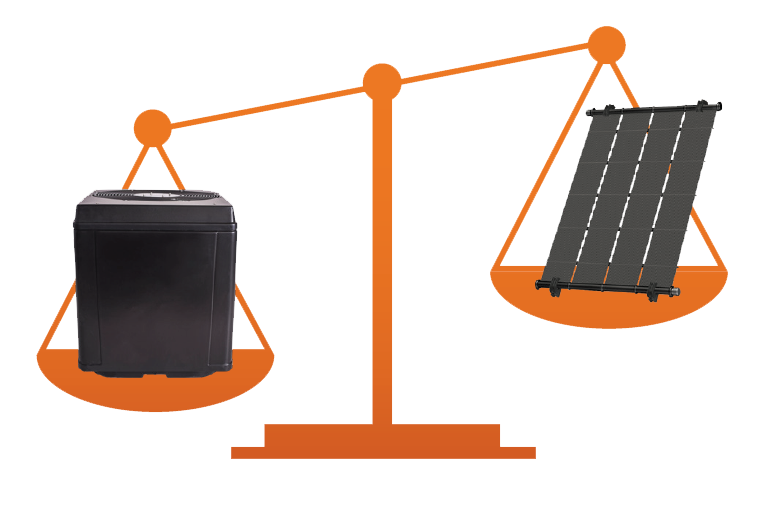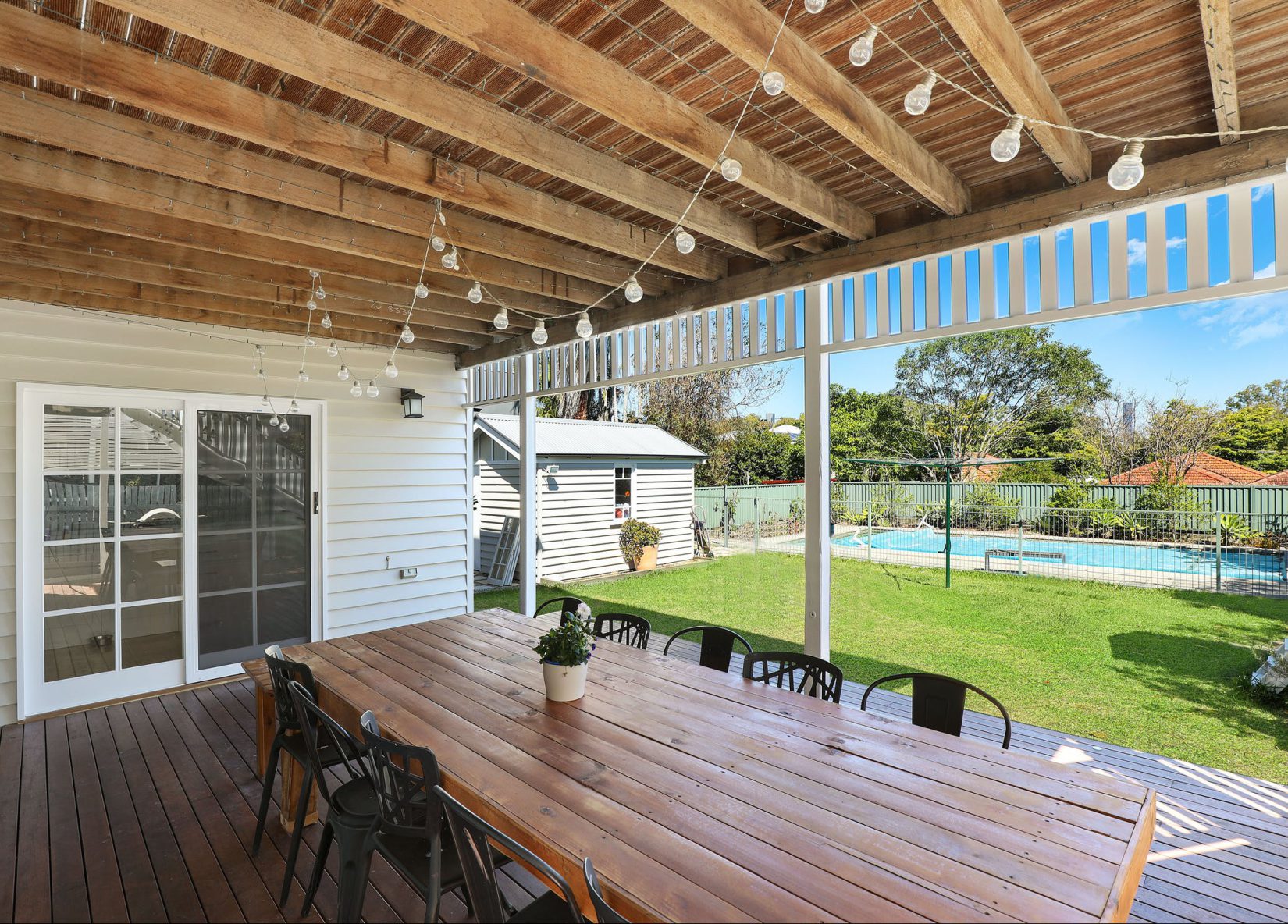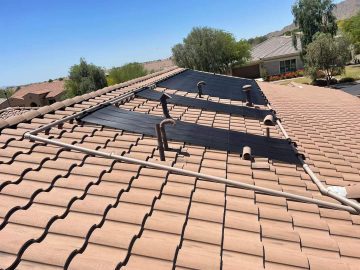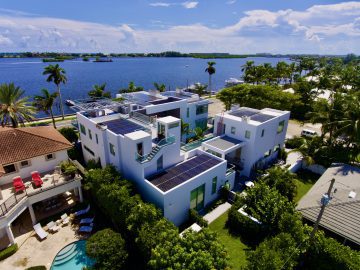Installing an eco-friendly pool heater is a natural choice to reduce your impact on our environment. However, not all pool heaters are the same.
Some pool heaters are more expensive long-term or have a greater environmental impact than you may think. On top of that, they can come with their own hidden utility costs. So how do you choose the right eco-friendly pool heater?
The Types of Pool Heaters
There are three major types of pool heaters: gas, electric heat pump and solar. Each type of pool heater has its own benefits and drawbacks.
Gas Pool Heaters
Gas pool heaters rely on fuel to operate—either natural gas or propane. These kinds of heaters will warm your pool rapidly but are not very energy-efficient. They are the most expensive way to heat your pool.
Pool water is pumped through the heater where burning gas heats up the water before it returns to your pool. This type of heater can heat your pool faster than any other type of heater but they are often too expensive to operate on a regular basis.
Electric Heat Pump Pool Heater
This type of heater uses a refrigerant cycle to remove the heat from the air and put it in your pool. The refrigerant inside of a copper coil absorbs heat, becomes a gas, and moves to a compressor. The compressor increases the gas pressure heat before moving it along to a condenser. This type of heater is usually less expensive to operate than gas but is slower to heat your pool. The colder it is outside, the more energy required to heat your pool water. If you live in a cooler region, it’ll take more energy and a bigger heat pump to heat your pool, which can add to your energy costs. While not the least energy-efficient option, electric pool heaters can leave a lot to be desired in eco-friendliness.
Solar Pool Heaters
Unlike gas and electric pool heating systems, solar pool heaters rely simply on the sun to heat your pool.
A solar pool heater uses panels to collect sunlight and heat your pool water. Solar collectors are positioned on your roof, optimally facing south. Water passes through a filter as with the other two heating systems, before moving up to the solar collectors. which heats the water and then transfers it back to your pool.
Unlike electric and gas pool heating systems, solar pool heaters require minimal energy to work since they leverage the sun’s radiant energy. Solar is a fraction of the cost compared to gas and electric pool heaters. Solar pool heaters are the most eco-friendly and energy-efficient pool heating system.

How Is a Solar Pool Heater Eco-Friendly?
Solar pool heaters are the most eco-friendly pool heaters available. Not only can they reduce your carbon footprint, but you can also save on utility costs without sacrificing efficiency or your swim season.
Fewer Emissions
Since a solar pool heater doesn’t burn gas or propane to run, it doesn’t produce harmful emissions. Some states like California actually have regulations in place for gas pool heaters regarding their emissions and air quality standards.
Gas pool heaters release nitrogen oxide into the air as emissions, though how much is released depends on the equipment itself. These rules and regulations are in place to limit the emissions a single pool heater can release to try and protect the environment. All in all, gas pool heaters may be the least environmentally-friendly pool heater.
No Wasted Fuel
Depending on your pool’s size, you may need to burn more fuel or use more electricity in order to heat it. Even with pool covers to conserve energy, cooler temperatures will require you to use your pool heater more often if you want to take a dip.
Gas pool heaters also degrade over time, requiring more maintenance and fuel to operate and heat your water. An electric heater can require massive amounts of electricity in order to heat your entire pool, and it can especially depend on the weather and temperature.
A solar pool heater’s panels are relatively maintenance-free and can outlast the roofs on which they’re installed. Comparatively speaking, a solar pool heater is much more efficient in its operation because it’s drawing on energy from the sun.
Energy Savings
As noted earlier, solar pool heaters are much more efficient and durable than gas or electric pool heating systems. You don’t need to worry about replacing broken coils or compressors with solar panels installed on your roof. Those replacement costs, in addition to paying for fuel and electricity, can add up over time.
How to Choose the Right Eco-Friendly Pool Heater
Choosing the right eco-friendly pool heater will come down to the size of your pool, where you live and how you want to use your pool throughout the year.
If you live in an area with sunshine throughout the year, you can see excellent savings by investing in a solar pool heater. In fact, some states actually offer tax breaks and incentives to install solar power at your home.
Once you’ve evaluated the size of your pool, your local electricity rates and the hours of daily sunlight you receive will help determine what kind of solar pool heater you need. You may not need a top-of-the-line heater if you plan on just using your pool for a fun afternoon. However, if you have a much larger pool or want a very specific temperature for your water, a more high-end solar pool heating system can give you those exact readings.
After you initially install the solar panels, you can enjoy your heated pool all year round with a smaller carbon footprint. And with minimal maintenance, your savings add up year-over-year for a greater return on your investment.
Conclusion
If you’re thinking of installing an eco-friendly pool heater for your home, you need a system that works at peak efficiency for years on end. While gas and electric pool heaters may get the job done and warm your pool water, that comes with costs in energy and emissions.

Gas pool heaters, using propane or natural gas, release greenhouse gasses and electric pool heaters require more electricity if you have a large pool. That makes both pool heaters a relatively risky choice if you’re looking to reduce your environmental impact and still enjoy your pool.
On the other hand, solar pool heaters work just as hard with fewer costs—both financially and environmentally. Solar panels will last for upwards of two decades without needing intensive maintenance and still shrink your carbon footprint by reducing emissions and energy use. All in all, that makes solar pool heaters the most eco-friendly pool heaters!
Ready to Start Shrinking Your Carbon Footprint?


![4 Steps To Solar Pool Heater Installation [Infographic] 4](https://umasolar.com/wp-content/uploads/2021/07/shutterstock_80322160-scaled.jpg)
![How Solar Pool Heating Systems Work In 6 Steps [Infographic] 5](https://umasolar.com/wp-content/uploads/2021/09/child-with-father-in-swimming-pool-Arizona-2021-04-02-21-00-06-utc-scaled-1.jpg)
